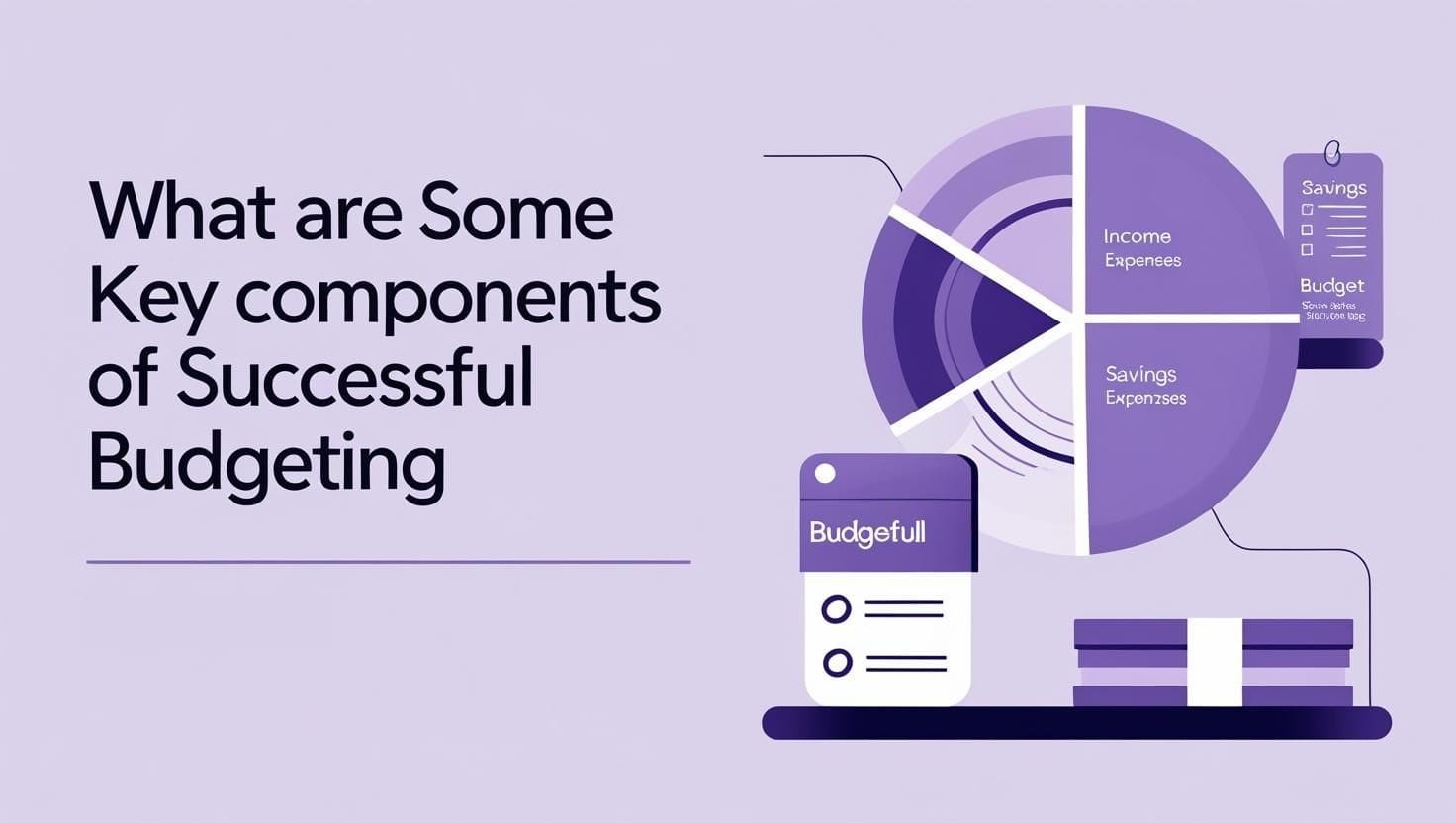Budgeting isn’t just for people in financial trouble or those aiming to save money. It’s a basic skill that can help anyone – from college students to business owners – take control of their finances. But what actually makes a budget successful? It’s not about complex spreadsheets or punishing yourself by cutting out every comfort. Instead, a successful budget is built on clear principles, realistic goals, and consistent habits.
Imagine trying to plan a vacation without knowing how much you can afford or when you’re going. Budgeting without key components is just like that – uncertain, stressful, and likely to go off-track. Whether you’re living paycheck to paycheck or managing a six-figure income, understanding and applying the core elements of budgeting can help you make smarter decisions, reduce financial anxiety, and plan for what truly matters.
In this article, we’ll break down the essential parts of successful budgeting, explain how they work together, and offer practical tips to make your budgeting journey smoother and more effective.
Table Of Contents
Clear Financial Goals
Know What You’re Budgeting For
Every successful budget starts with a goal. Without one, it’s hard to measure success or stay motivated. These goals should reflect your personal values and needs – whether it’s building an emergency fund, paying off debt, saving for a home, or planning a vacation.
Types of financial goals:
- Short-term (0–1 year): Pay off a credit card, save for a laptop
- Medium-term (1–3 years): Build an emergency fund, save for a car
- Long-term (3+ years): Retirement planning, buying a house
Practical tip: Use the SMART method (Specific, Measurable, Achievable, Relevant, Time-bound) to define your goals.
Accurate Tracking of Income and Expenses
Understand Where Your Money Goes
Budgeting is impossible if you don’t know how much you’re earning and spending. Keeping accurate records helps identify leaks – areas where money disappears without much return.
Tracking methods:
- Apps like YNAB, Mint, or Excel sheets
- Manual journaling for daily awareness
- Bank alerts and expense notifications
Common categories to track:
| Category | Examples |
| Housing | Rent, mortgage, utilities |
| Transportation | Gas, maintenance, insurance |
| Food | Groceries, dining out |
| Insurance & Health | Premiums, prescriptions |
| Personal | Subscriptions, clothing, hobbies |
| Savings & Debt | Loan payments, retirement fund |
Tip: Review your spending weekly. A quick 10-minute check-in can help you stay on track.
Realistic and Flexible Budget Plan
Don’t Make It Too Strict to Follow
One of the biggest reasons budgets fail is because they’re too rigid. Life is unpredictable – car repairs, gifts, and medical bills don’t always wait for payday.
Popular budgeting methods:
- 50/30/20 Rule:
- 50% Needs
- 30% Wants
- 20% Savings/Debt
- Zero-based budgeting: Assign every dollar a job so income minus expenses equals zero.
Practical tip: Always include a “miscellaneous” category to handle unexpected expenses without guilt.
Emergency Fund
A Safety Net That Keeps You On Track
Without an emergency fund, a single unexpected cost can wipe out your budget. Having 3–6 months’ worth of expenses in a separate account can prevent you from going into debt during crises.
Start small:
- Begin with ₹5,000–₹10,000 (or $100–$200) and build gradually.
- Automate transfers into this fund each month.
When to use it:
- Medical emergencies
- Job loss
- Urgent car/home repairs
Regular Budget Reviews and Adjustments
Budgets Are Living Documents
A successful budget evolves with your life. Salary changes, family expenses, new goals – all these impact how your budget should work.
Monthly review checklist:
- Did you overspend in any category?
- Did you meet your savings goal?
- Any new recurring expenses added?
- Any extra income or bonuses?
Tip: Set a calendar reminder to revisit your budget every 30 days.
Accountability and Motivation
Stay Committed Without Burnout
Even a well-designed budget can fall apart without consistency and motivation. You need tools or support systems to stay accountable.
Ways to stay motivated:
- Budgeting apps that give visual feedback
- Accountability partners – spouse, friend, or community group
- Celebrating small wins like paying off a debt or sticking to your grocery budget
Real-world example: A couple saved ₹20,000 in three months by eating out only once a week instead of three times. They celebrated by taking a short weekend trip – planned within the budget.
Conclusion
Budgeting isn’t about restrictions – it’s about clarity, control, and confidence. The key components of successful budgeting include clear goals, accurate tracking, realistic plans, a safety net, periodic reviews, and staying accountable. Mastering these elements doesn’t require advanced finance knowledge – just awareness and consistency.
Whether you’re just starting or refining your budget strategy, use these pillars as your guide. With every step, you gain more insight into your financial habits and build a life that aligns with your priorities.
FAQs
What is the most important part of a successful budget?
Setting clear, realistic financial goals is the most crucial part. Goals guide your spending, saving, and tracking efforts.
How often should I review my budget?
You should review your budget monthly to adjust for changes in income, expenses, and financial goals.
How do I start budgeting if I’ve never done it before?
Begin by listing your total monthly income and all fixed and variable expenses. Use a simple spreadsheet or budgeting app to track everything and adjust as you go.
Why do most budgets fail?
Budgets often fail due to being too strict, not updated regularly, or not aligned with realistic financial behavior.
How do I track expenses effectively?
Use budgeting apps, spreadsheets, or bank alerts to record every transaction and categorize spending weekly.
How much should I have in an emergency fund?
Aim for 3–6 months’ worth of essential living expenses, starting with a small amount and building it gradually.
Can budgeting help me get out of debt?
Yes. Budgeting helps you prioritize debt payments, avoid new debt, and allocate extra funds toward reducing balances.
What’s a good way to stay motivated while budgeting?
Track progress visually, set small goals, and reward yourself with non-expensive treats when milestones are reached.




